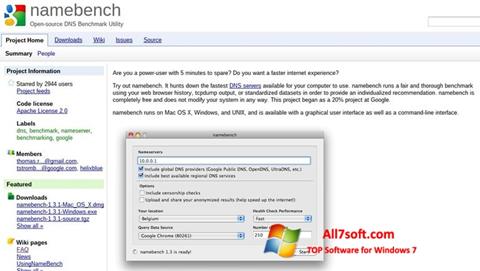
Apparently my ISP is 150% faster than openDNS, but it is cable 😉 However, there are allot of other benefits of using other dns services (opennic for one) as it will give “some” amount of anonymity to your browsing.

When the benchmarking is complete, you may get a surprised to what it suggests. namebench was written using open-source tools and libraries such as Python, Tkinter, PyObjC, dnspython, jinja2 and graphy. namebench runs on Mac OS X, Windows, and UNIX, and is available with a graphical user interface as well as a command-line interface. It does tend to take a while, so either go make some c4wf335 or visit cause I want visitors! 😛 This project began as a 20 project at Google. This is used to allow namebench to use a Graphical interface, if you do not use this, I think it will default to command line, so its not vital if you don’t want to use it.Ĭlick that one button, and away it goes!.

Namebench finds them.First it needs some Python library if you aint got it already. While your internet provider usually automatically assigns you one of their servers to handle looking up these addresses, there may be others that are significantly faster. Over the course of loading a single web page, your computer may need to look up a dozen of these addresses. On the internet, when you want to visit “a DNS server needs to looks up the correct address for you. You can think of a DNS server as a phone book: When you want to dial a company on the phone, you may have to flip through a phone book by name to find their phone number.

namebenchdevserver. namebench, which should open up a UI window. Namebench looks for the fastest DNS servers accessible to your computer. You should have an executable named namebench in the current directory.


 0 kommentar(er)
0 kommentar(er)
